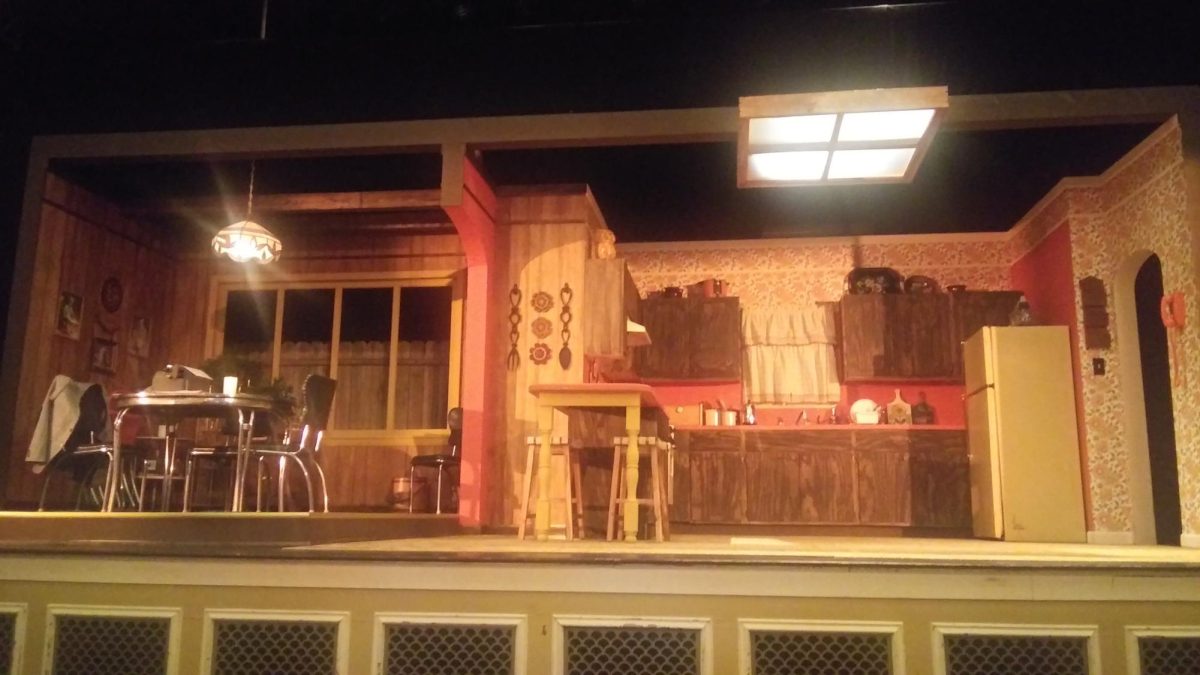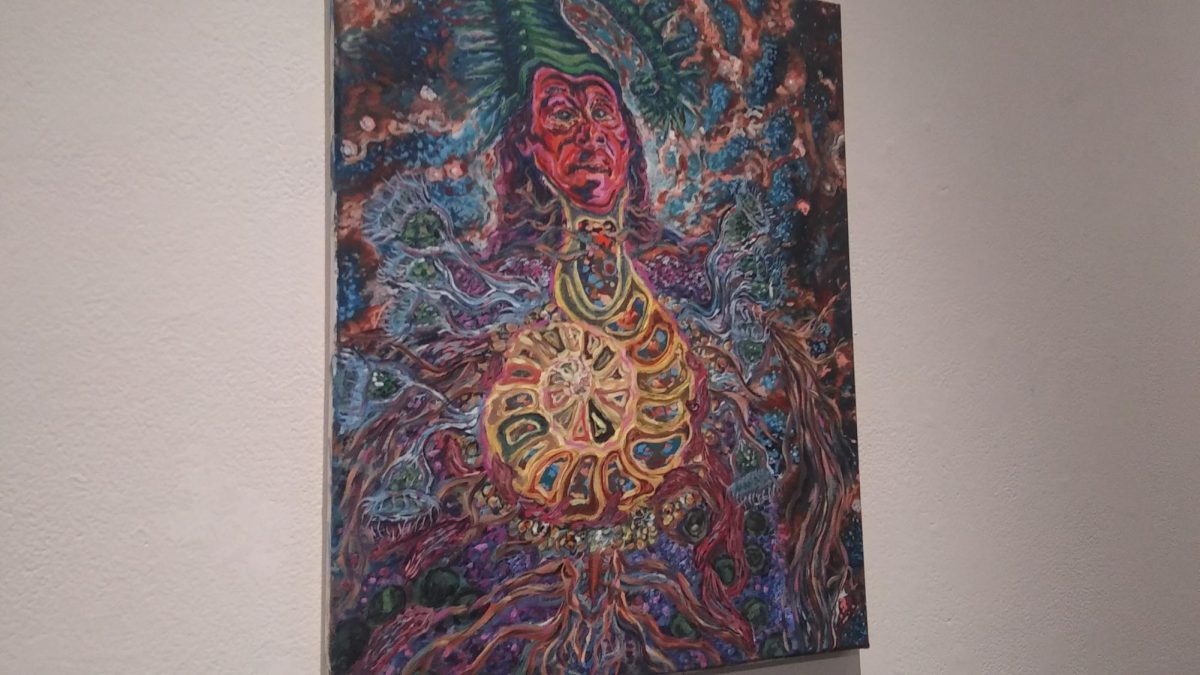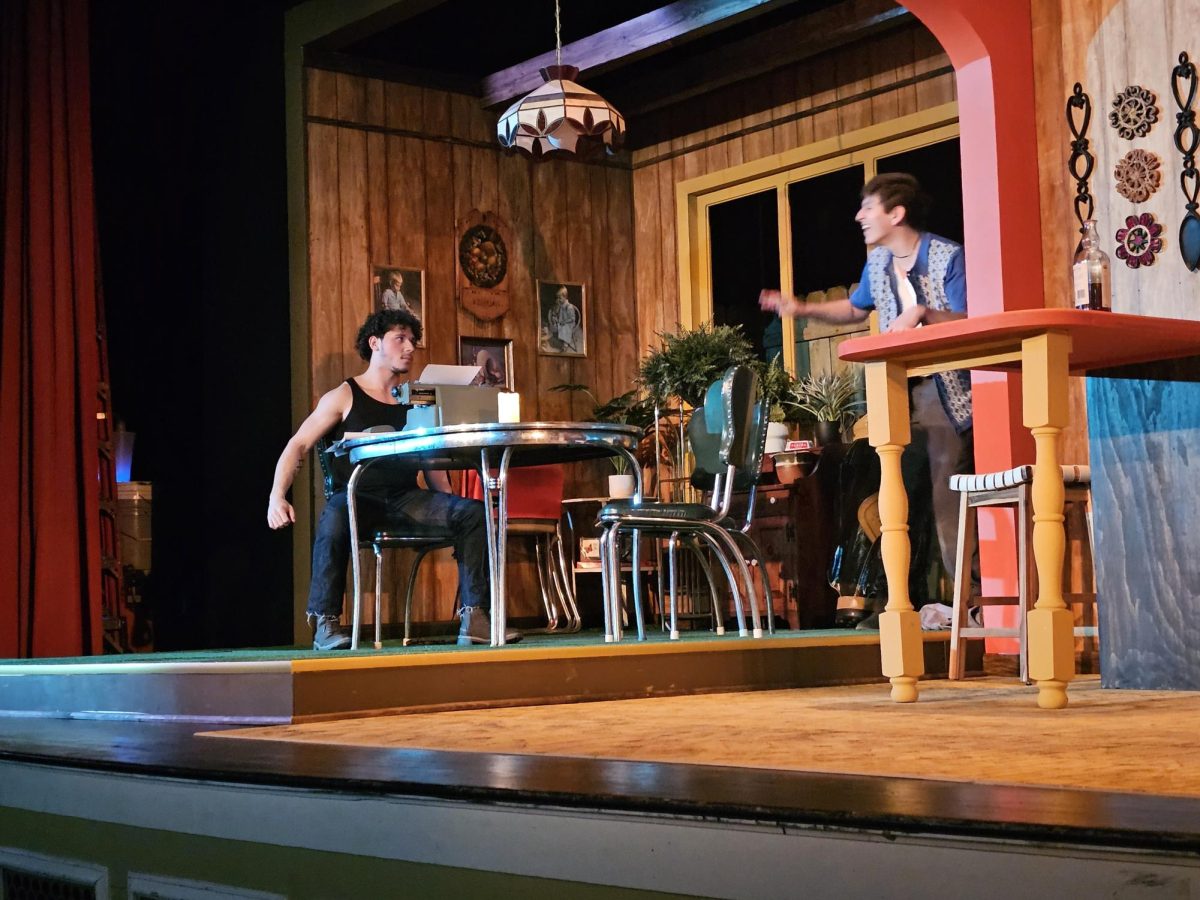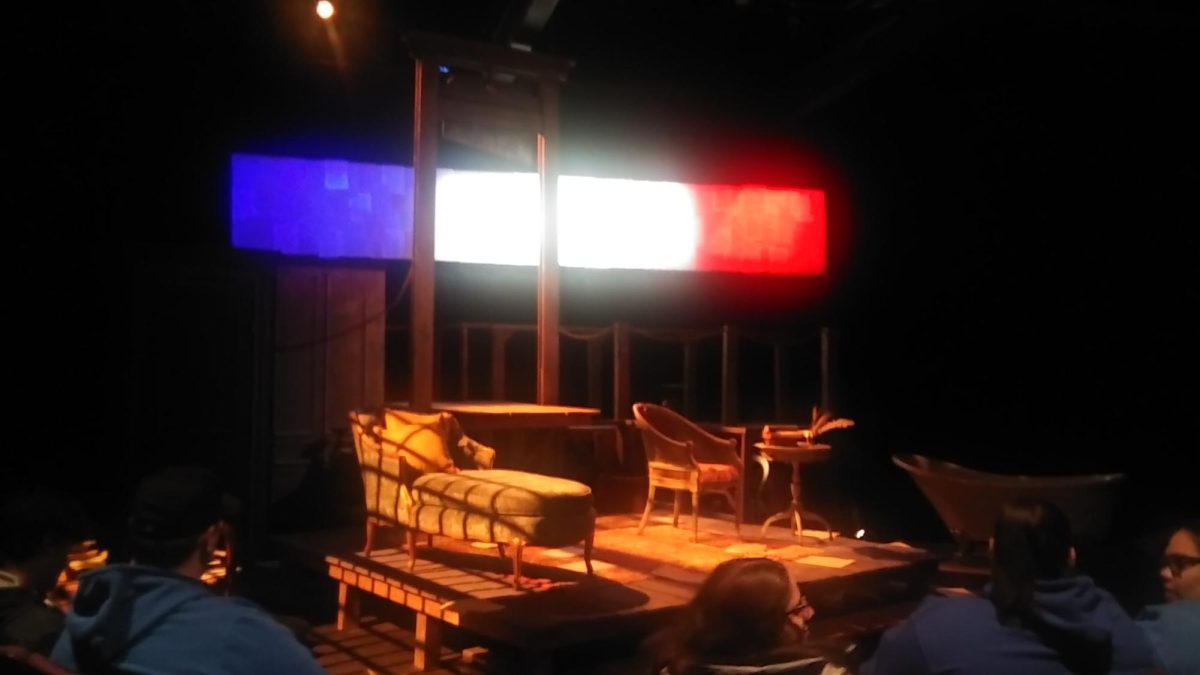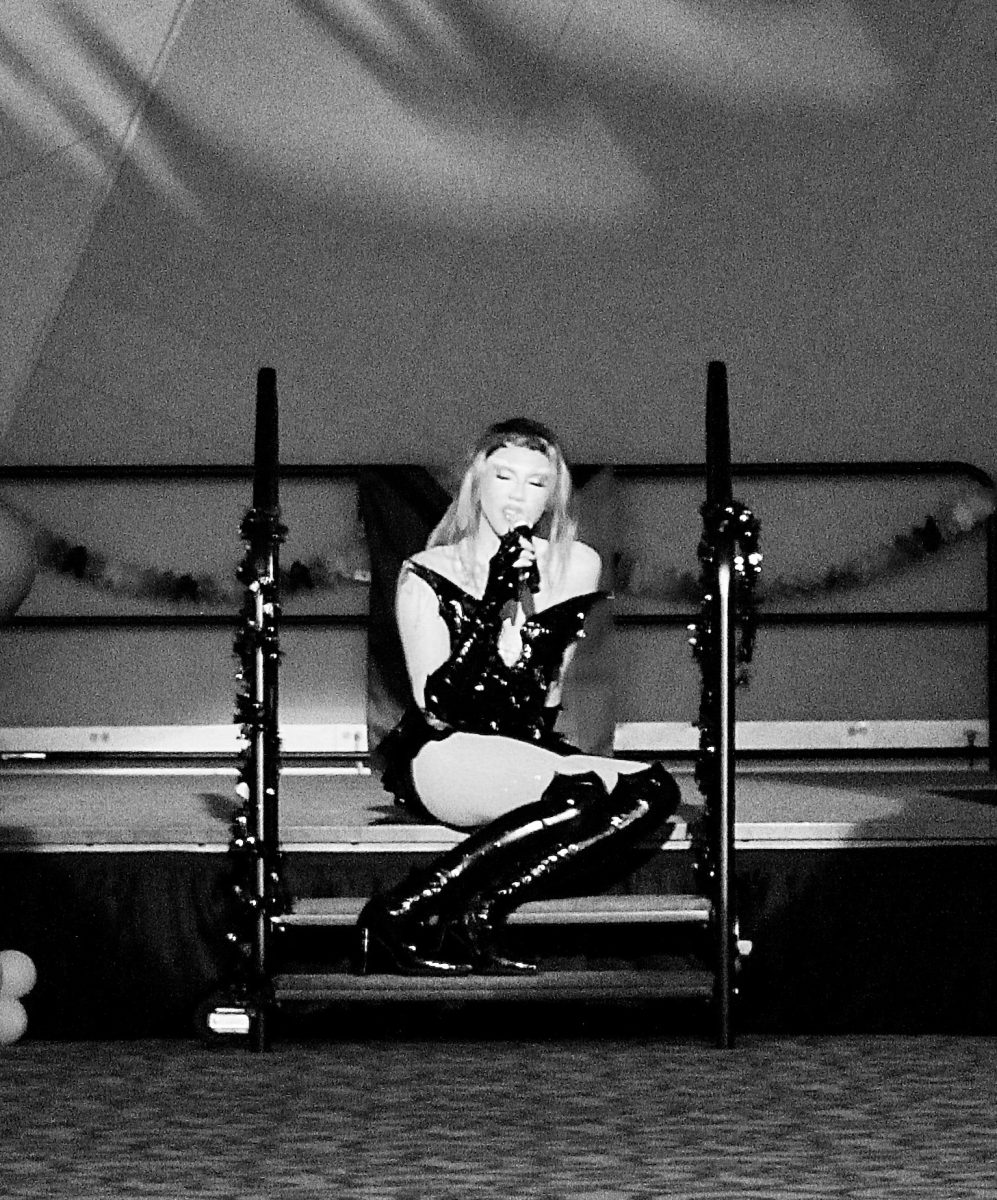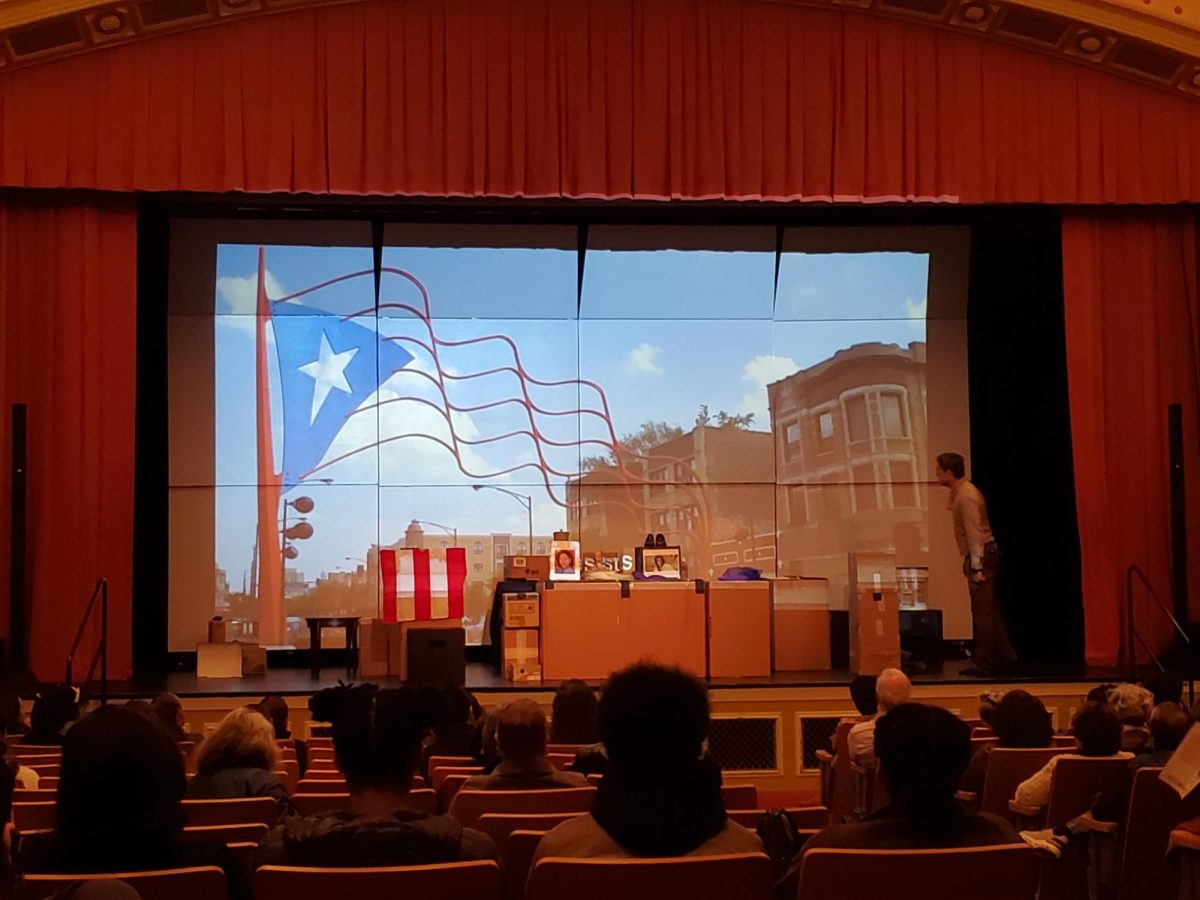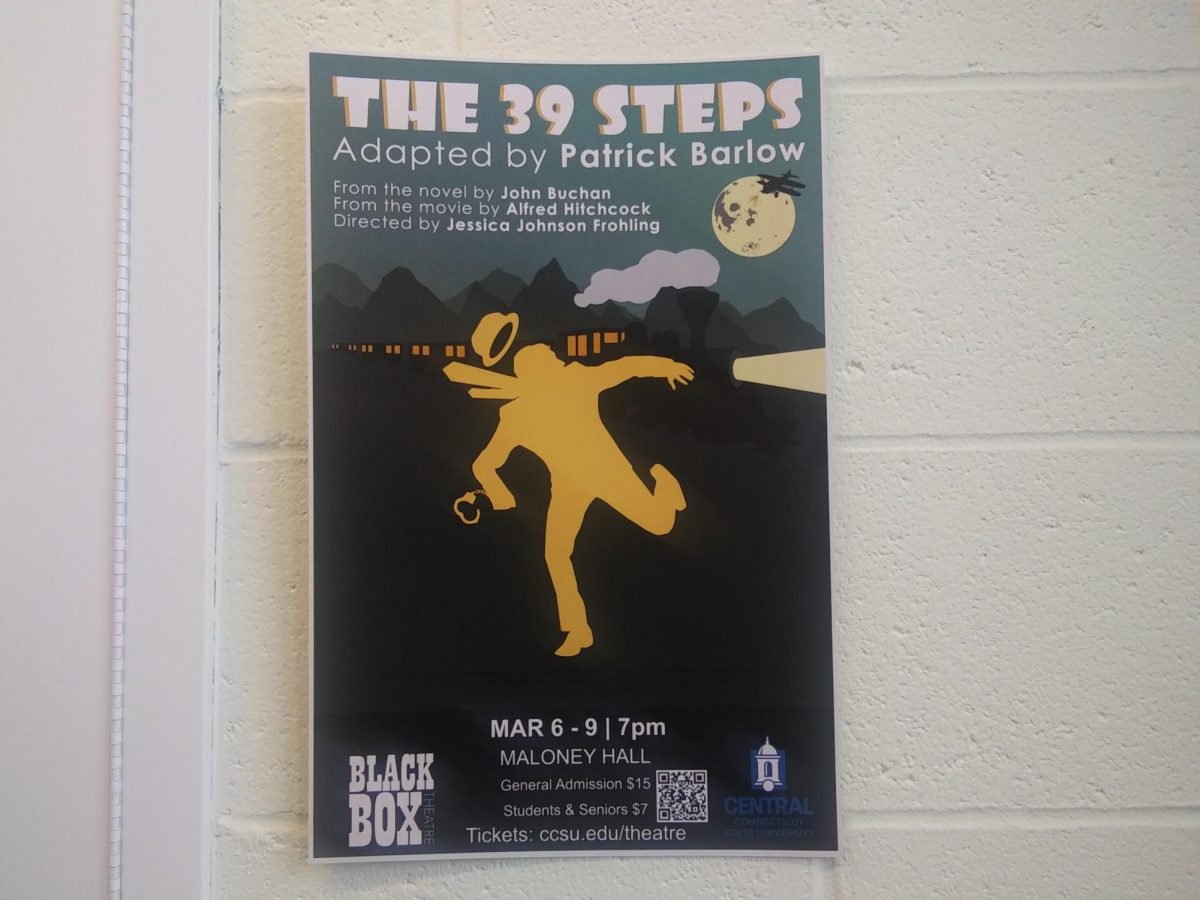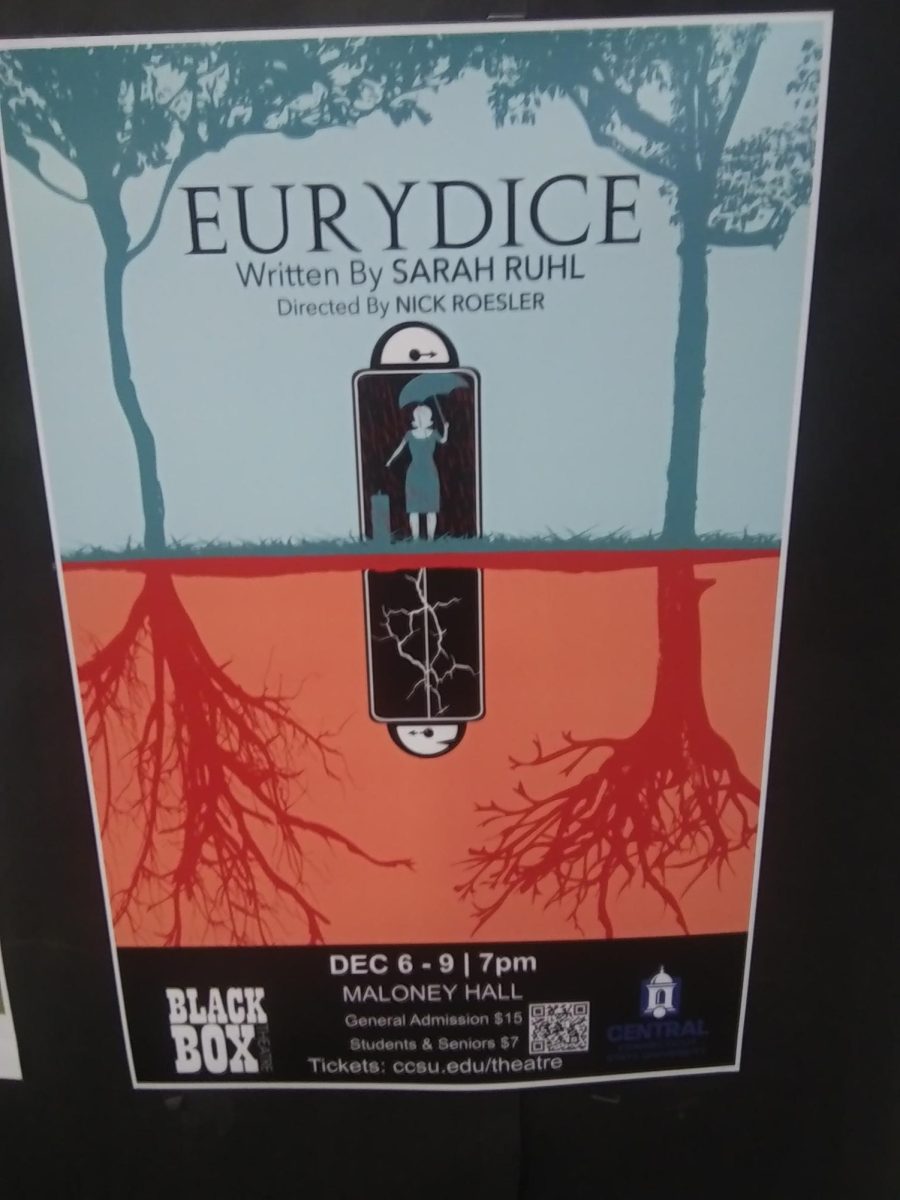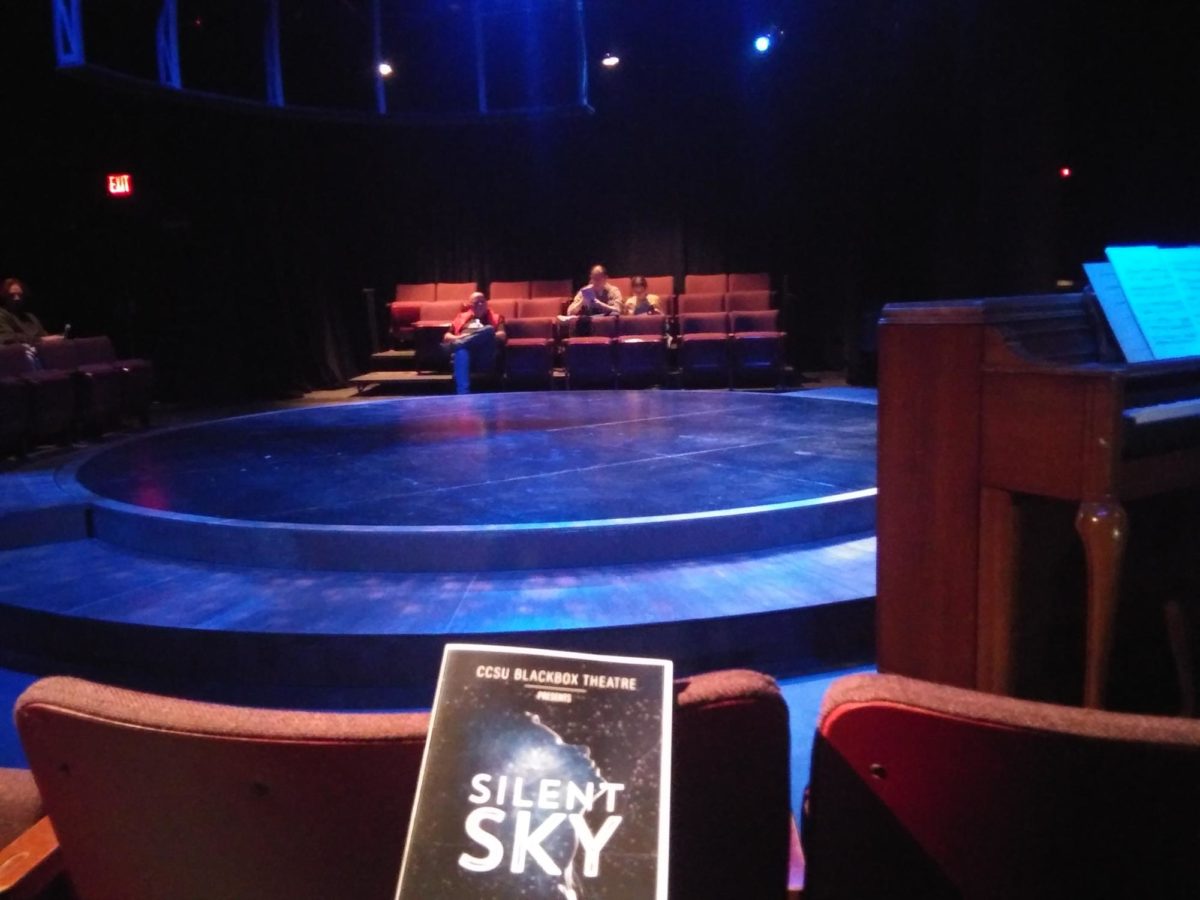Central Connecticut State University’s production of “True West” brings a dynamic, comedic flair to the classic Sam Shepard play. Conducted by the Theatre Department, the show displays the talent of the student performers while exploring the downfall of men.
This staging of the play leans hard on the absurdity of the scenario that Lee (Anthony Cosme) and Austin (Derrick Lopez) find themselves up in over the course of the story as they housesit for their mom (Katelyn Webster). The result is that it becomes more of a black comedy than a drama. “True West” has theming of the American Dream and the failure thereof with Austin losing so much in his life despite all the work he had put in and Lee’s struggles to seize his new opportunities from producer Saul Kimmer (Matthew Riley). Their circumstances are fundamentally tragic but aren’t played for it in favor of being comedic, which in turn only increases the absurdity. The comedy doesn’t overshadow the dramatic moments though, but rather makes them more impactful by creating a form of contrast. The ending is made all the more visceral because of how goofy the characters had initially seemed and the physicality of the actors.
The relationship between the brothers is presented as more estranged than the usual strained. Lee is played in a more playfully taunting and somewhat sardonic manner, rather than the barely concealed hostility the character has been played with in other productions. While there is rage in the moments where Lee confronts Austin, the ways that Lee will at times interact with Austin in a cordial manner says that this version of Lee still loves his brother despite his resentment of seemingly having a better life than him.
Cosme plays Lee with sarcasm and self-confidence, making his character really come across as the grifter that he gets accused to be. He feels much less antagonistic, which in turn makes Lee a more likeable and sympathetic character. This in turn makes him easier to root for, even as Lee’s course of actions destroy his brother’s. He still has his moments of being menacing, particularly in act two, that show that this Lee retains his destructive nature towards himself and his brother. Cosme makes Lee unapologetically engaging to watch onstage in every scene.
Lopez’s performance as Austin has a remarkable amount of pathos. One of the best aspects of his performance is in the subtleties. What an actor does in the moments when they are not doing dialogue or action can greatly inform how a character is portrayed. Lopez’s facial expressions in reaction to his dreams falling apart serve to make Austin into a believable person sinking into despair. His commitment to the performance of drunk Austin and willingness to let himself get throw about the stage is a commendable amount of dedication that gives even more weight to Austin in the scene.
While the set does not end up as destroyed as the play intends it to be, I appreciate that it wasn’t, as a former stagehand. The destruction strikes a good balance between messy chaos and easy to reset for the next performance. An extra bit of humor was added with Lee and Austin scrambling to clean the house up when Mom returns home early. This gave the brothers an added level of care for their mother and shame for what they’ve done to the house while she was away.
The use of lighting was incongruous at times and came across as jarring in others. The nighttime scenes in particular did not come across as such because of how the stage was lit. There was little to distinguish what time a scene was occurring outside of the spoken dialogue of the characters. As such, it reduced the impact of the tense nights Lee and Austin are sharing. Additionally, there were some disconcerting decisions when it came to how the lighting changed. More than once, the lighting would shift to brighter or darker mid-scene. While it is not unusual for lighting to change as characters move about the stage, this was a small set and there didn’t seem to be any significant reasons for the lighting to change at times when the characters were mostly stationary and just talking in a scene. If it were to be shifting to match the change in the characters’ emotions and arcs it would have had more cohesion rather than coming across as a weird choice of direction that distracts somewhat from the ongoing action.
As a well-known play, “True West” has gone through many interpretations over its almost 50 years of existence. This production shines in the acting of its two main leads to create a comedic, yet dramatic show about the relationship between brothers and stories in life.

